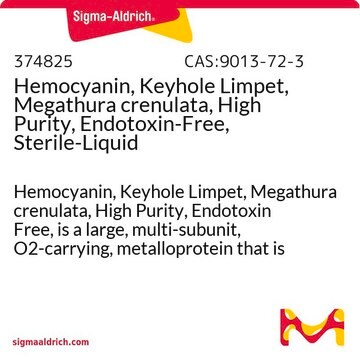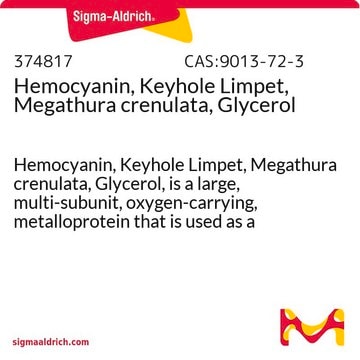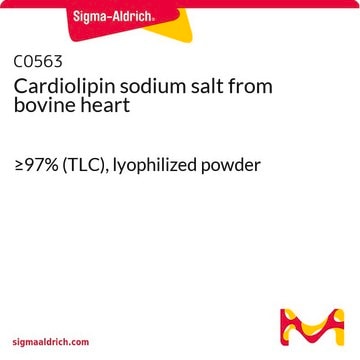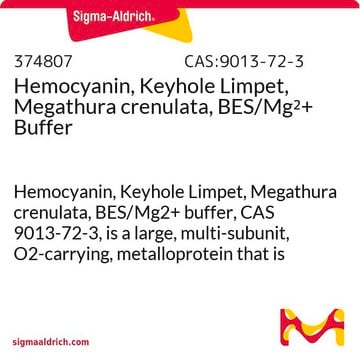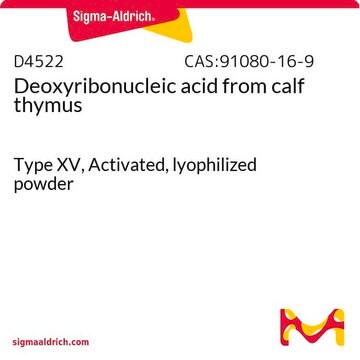H8283
Hemocyanin from Megathura crenulata (keyhole limpet)
PBS solution
Synonym(s):
KLH, Keyhole limpet hemocyanin
Sign Into View Organizational & Contract Pricing
All Photos(1)
About This Item
Recommended Products
biological source
Megathura crenulata
Quality Level
form
PBS solution
concentration
3.0-7.0 mg/mL protein (A280)
copper content
0.10-0.30% (based on protein)
technique(s)
ELISA: suitable
storage temp.
2-8°C
Looking for similar products? Visit Product Comparison Guide
General description
Gastropod hemocyanins are massive glycoproteins (4 to 8 MDa) designed by an intricate arrangement of 10 subunits that are self-assembled into hollow cylinders 35 nm in diameter.
Hemocyanin is a high molecular weight copper containing glycoprotein. It reversibly binds oxygen and forms the extra-cellular respiratory protein of mollusks. Keyhole limpet hemocyanin (KLH) is filtered from the hemolymph of Megathura crenulata, also called the giant keyhole limpet. It is native to the southern California coast and Mexico.
Application
Keyhole limpet hemocyanin (KLH) is a strong and well known immune-stimulant in both experimental animals and humans. It has been used as a hapten carrier protein to enhance antigen-specific T cell priming and is known to stimulate a CD4+ T-cell response.
Hemocyanin was used to study if antipeptide antibodies specifically recognize the l1 protein of the human papilloma virus of type 31. It was also used to study the acid-induced unfolding of didecameric keyhole limpet hemocyanin.
Hemocyanin was used to study if antipeptide antibodies specifically recognize the l1 protein of the human papilloma virus of type 31. It was also used to study the acid-induced unfolding of didecameric keyhole limpet hemocyanin.
Physical form
Solution in PBS, pH 7.2, containing 1mM CaCl2 and 0.5 mM MgCl2 with 15 mM sodium azide as preservative
Preparation Note
Chromatographically purified.
Storage Class Code
10 - Combustible liquids
WGK
WGK 3
Flash Point(F)
Not applicable
Flash Point(C)
Not applicable
Certificates of Analysis (COA)
Search for Certificates of Analysis (COA) by entering the products Lot/Batch Number. Lot and Batch Numbers can be found on a product’s label following the words ‘Lot’ or ‘Batch’.
Already Own This Product?
Find documentation for the products that you have recently purchased in the Document Library.
Customers Also Viewed
Ankita Varshney et al.
Amino acids, 39(3), 899-910 (2010-03-10)
Keyhole limpet hemocyanin (KLH) is widely used as an immune stimulant and hapten carrier derived from a marine mollusc Megathura crenulata. To provide details of the stability and equilibrium of KLH, different intermediate species were investigated with a series of
Hendrikus J Wijnen et al.
Frontiers in veterinary science, 8, 784869-784869 (2022-01-01)
Resilient animals can cope with environmental disturbances in life with minimal loss of function. Resilience can be enhanced by optimizing early-life conditions. In poultry, eggshell temperature (EST) during incubation and early feeding are two early-life conditions that are found to
S M Andreev et al.
Bioorganicheskaia khimiia, 38(6), 667-675 (2013-04-04)
Antibodies that specifically recognize the capsid protein (L1) of human papillomavirus (HPV) are an important tool necessary for designing vaccines against HPV infection. In this work, we have predicted and synthesized peptide fragments mimicking B cell epitopes of L1 HPV
Juan Cordero-Solorzano et al.
Genetics, selection, evolution : GSE, 54(1), 68-68 (2022-10-24)
A sufficient IgG content in the colostrum is essential for the newborn calf, as it provides passive immunity which substantially affects the probability of survival during rearing. Failure of passive transfer (FPT) occurs when a calf does not absorb enough
Traumatic aneurysm of the internal carotid artery with fracture dislocation at C 5: case report.
H Wada et al.
Neurosurgical review, 12 Suppl 1, 600-601 (1989-01-01)
Our team of scientists has experience in all areas of research including Life Science, Material Science, Chemical Synthesis, Chromatography, Analytical and many others.
Contact Technical Service
